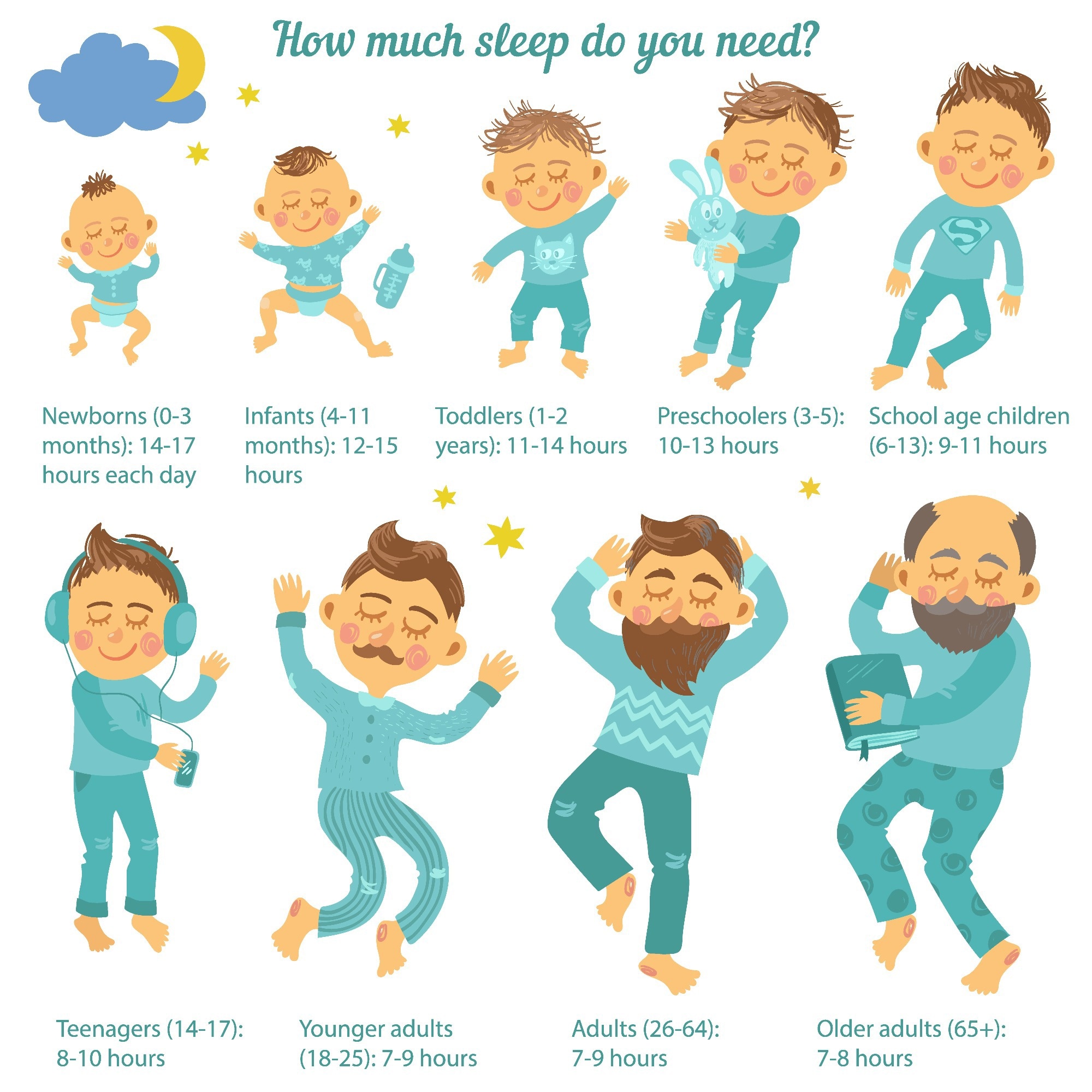Introduction
How Much Sleep do Babies Need?
When does Sleep Regression Occur?
What Biological Pathways Cause Sleep Regression?
Sleep Regression is a Developmental Steppingstone
References
Further Reading
Sleep regression refers to a period of change in sleeping patterns experienced by babies. This change often occurs when infants who previously had no issues with sleep, settling well, or sleeping for prolonged periods suddenly experience wakeful nights and difficulty napping.

Sleep regression. Image Credit: Liga Cerina/Shutterstock.com
This change in sleeping habits can be difficult for parents since the waking is unrelated to basic needs and instead is due to the baby’s development changes in sleep cycles. However, this period does not last forever, and disruptions in sleep will eventually subside. Understanding the biology of sleep can uncover the causes of disrupted nocturnal patterns in infants.
How Much Sleep do Babies Need?
Infants’ sleep needs vary depending on their age since sleep is a developmental process associated with brain growth. Sleep requirements and the ability to fall asleep easily in infants are also influenced by their homeostatic sleep pressure. This pressure exists in both adults and infants and accumulates whilst awake creating the feeling of tiredness; this pressure is decreased whilst sleeping to allow one to stay awake for longer.
Newborn babies require approximately 16 hours of sleep split evenly between nighttime and daytime. This gradually reduces as babies age, favoring more total nighttime sleep until 2 years where total infant sleep of 13 hours is split between 11 hours nocturnally and 2 hours diurnally.
Sleep in newborns, however, does not tend to occur in prolonged 8–9-hour periods but instead accumulates during several short 1-2 hour naps at a time. This erratic schedule of short sleep periods is due to the lack of a circadian rhythm in infants, in addition to differences in sleep cycles in comparison to adults.
For instance, newborn babies only experience two sleep cycles at night, whereas adults experience 4, transitioning to the mature 4 phase cycle is thought to underlie sleep regression and disruptive sleep behavior.

How much sleep do you need? Image Credit: Rita Owl/Shutterstock.com
When does Sleep Regression Occur?
Sleep regression varies between infants, but it typically occurs around 4, 6, 12, 18 and 24 months of age. Despite the lack of formal research on sleep regression and age-related stages, some older studies suggest these periods coincide with developmental milestones. For instance, the first regression, commonly at 4 months, is the beginning of an inevitable change in the sleeping pattern and often occurs in conjunction with teething, growing pain and beginning to move and roll. 8-month regressions coincide with learning to crawl and stand, separation anxiety can also be experienced during this period which may contribute to sleep disruption.
Other factors may also contribute to the onset of the biological shifts fundamental to sleep regression including significant growth spurts, disruptions in routine such as beginning nursery or illness.
What Biological Pathways Cause Sleep Regression?
To understand why sleep regression occurs it is important to understand the adult sleep cycle. Sleep consists of two phases: rapid eye movement (REM) and non-rapid eye movement (NREM) which is further divided into N1,2 and 3 in adults. Cycles in adults begin with NREM 1, the lightest phase from which people are easily awoken, followed by NREM 2, a deeper sleep during which heart rate and body temperature decrease. NREM 3 is the final NREM phase and is considered the deepest sleep stage and the most difficult stage to wake from. NREM 3 is known as slow-wave sleep and during this phase the body repairs tissue, muscle, and bone in addition to strengthening the immune system. REM is the final phase of sleep, and although this is associated with dreaming it is not considered a restful state. The EEG during this phase is similar to signals from an awake individual, the breathing rate is irregular and oxygen use of the brain increases due to high activity during this phase.
In babies aged up to 3 months, however, sleep cycles only consist of two phases with sleep onset occurring in REM followed by quiet sleep, which is similar to NREM. Sleep is split evenly between REM and MREM during these initial months until the emergence of cortisol and melatonin cycling, which leads to the onset of mature circadian rhythm development. REM sleeps declines from 50% to 25% and shifts later in the cycle, whilst MREM phases also change into lighter sleep phases. It is likely that these shifts in the sleep cycle underlie sleep regression in babies, with the lighter sleep phases contributing to the constant waking. These cycles continue to alter and shift as babies grow and sleep for a lower total duration, leading to short periods of sleep regression in infants which present as difficulty sleeping for prolonged periods or altered napping patterns.
Sleep Regression is a Developmental Steppingstone
Although episodes of sleep regression may be difficult to manage and adjust to, these periods of disruptive sleep and repeated awakenings are temporary and signify developmental milestones in an infant. Regression occurs due to adaptations of sleep cycles to a more mature and adult-like circadian rhythm, that supports brain growth and development. Eventually following episodes of sleep regression, a child’s sleep biology will replicate that of an adult, resulting in sustained sleep architecture.
References
Further Reading
Last Updated: Oct 12, 2022